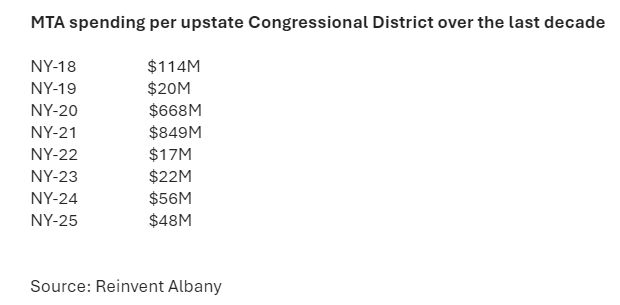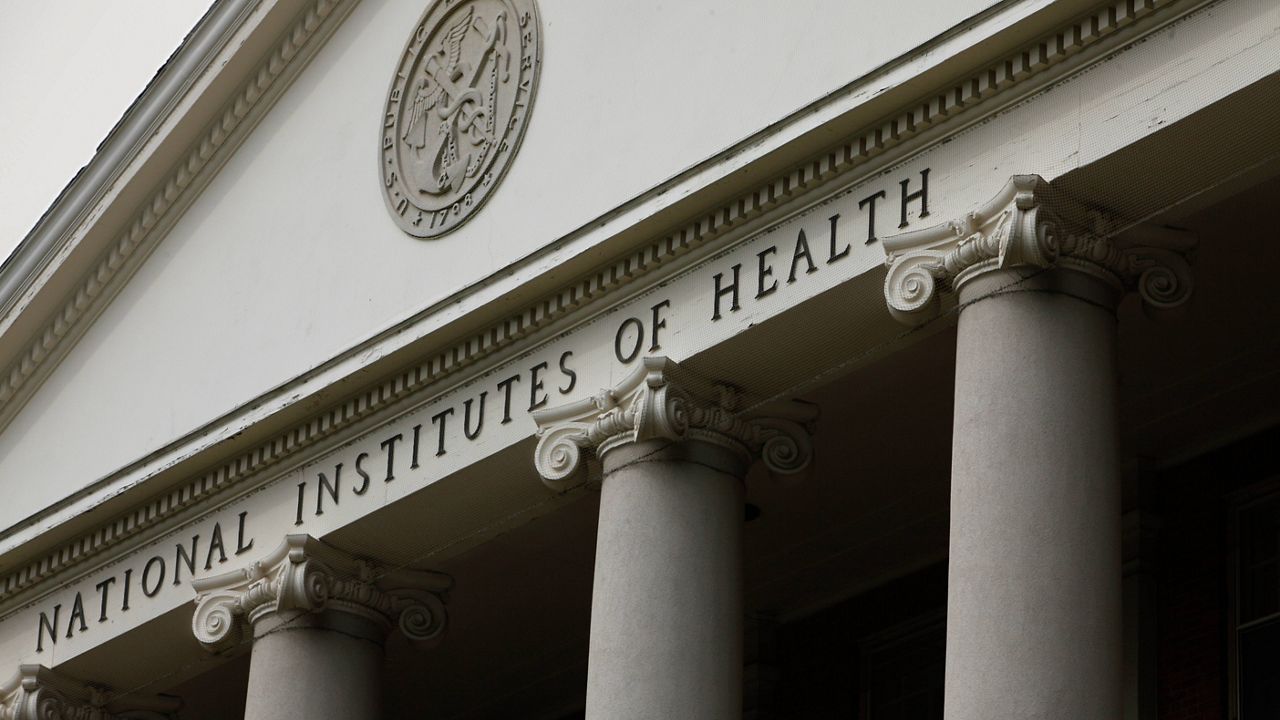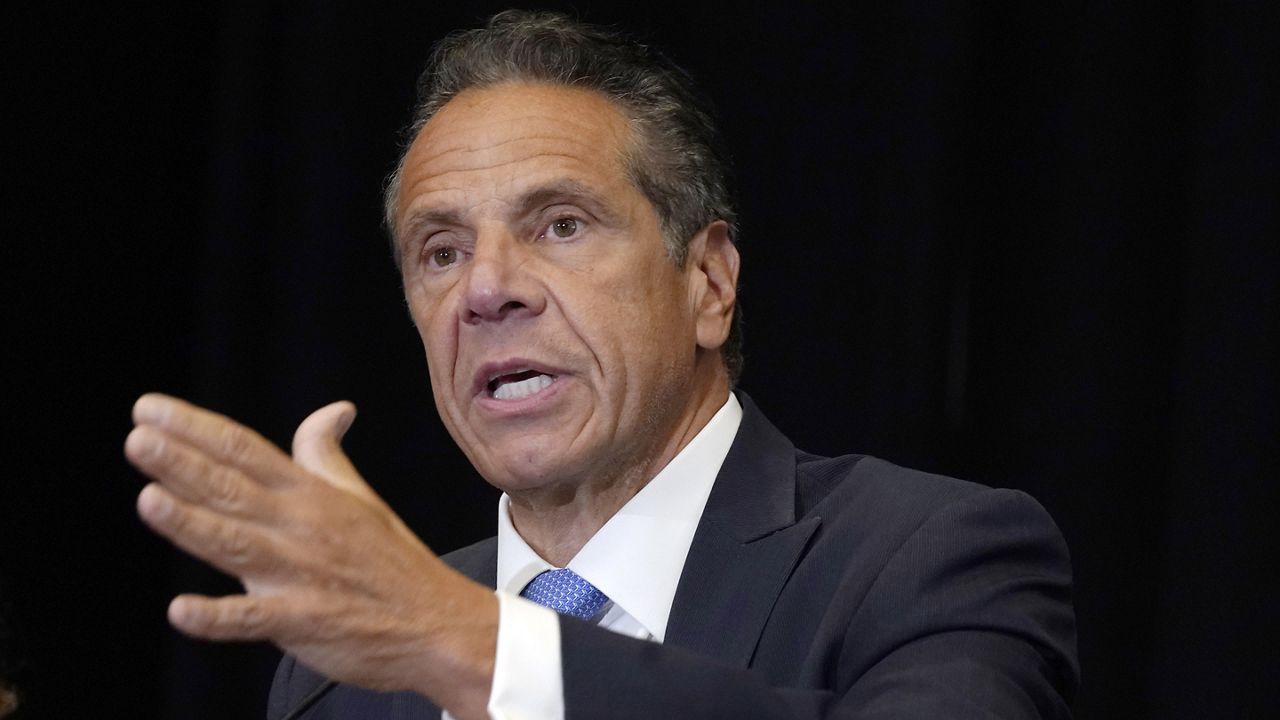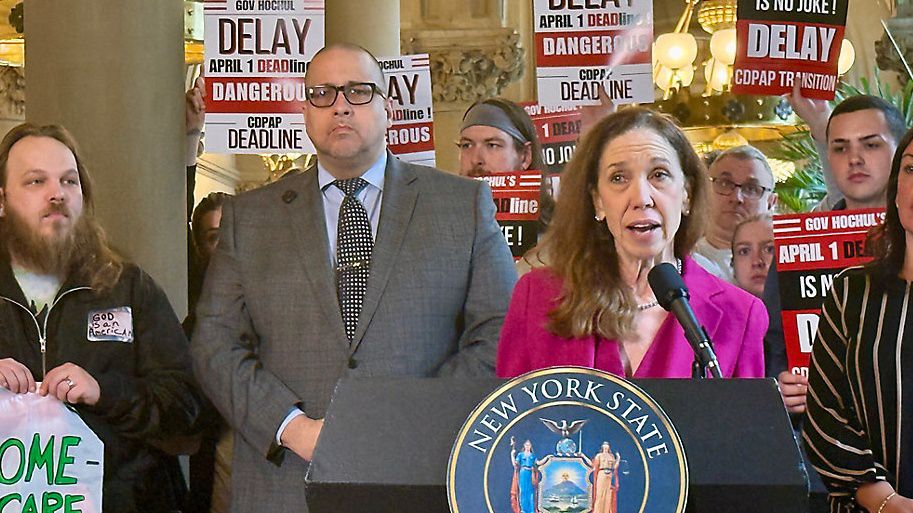Leaders of upstate manufacturing companies under contract with the Metropolitan Transportation Authority (MTA) for its capital projects said Wednesday they're concerned Gov. Kathy Hochul's decision to pause congestion pricing in New York City will have a negative economic effect on the rest of the state.
Hochul indefinitely paused congestion pricing last month just weeks before an average $15 charge to drive below 60th Street in Manhattan was set to take effect. The new tolls would have partly funded the MTA's $51.5 billion capital plan, but the pause created a $15 billion funding gap for the authority — halting several subway, railroad and other upgrades in their tracks.
The MTA has spent over $2.2 million in the last decade for contracts with Transit Air System LLC, a manufacturing company in Steuben County. Transit Air CEO Dhruv Sharma said the company has supplied components for various Long Island Railroad and Metro-North Railroad projects, like rail car upgrades, in the last 30 years.
But the company is stopping all work and investments in new equipment to complete planned LIRR improvements to be funded through congestion pricing because of its suspension.
"We laid out plans to invest in certain new equipment, new machinery, create a new line of work in hopes to be able to support a lot of those efforts that the MTA was going to put forward with the funding from congestion pricing to upgrade the systems, buy new rail cars and so on," Sharma said Wednesday. "There was quite a bit of long-term planning and so forth. For this suddenly to be yanked at the last minute complicates things. Thankfully, we had not acquired all the equipment yet, so we could put that on pause."
A new analysis by watchdog group Reinvent Albany shows the congestion pricing pause puts more than 100,000 jobs across the state at risk, including more than 87,500 if state leaders don't agree on a solution soon, and 87,600 jobs for MTA vendors.
"Those are jobs that are all over the state that support the MTA through the physical infrastructure that it takes to run the system," said Rachael Fauss, Reinvent Albany's senior policy advisor.
The MTA contracts much of its capital project work to outside private vendors — including several in Central and Western New York and other parts of the state. About $12 billion of the authority's $15 billion gap goes to private companies, while roughly $3 billion goes to MTA workers who do track repairs, Fauss said.
Leaders at custom manufacturing company Lin Industries Inc., which has received $7.4 million from MTA contracts since 2014, said in a brief phone interview Tuesday they are concerned about the negative impact delaying congestion pricing will have on business.
Sharma said the pause stopped system upgrades in development for several years and will impact local jobs.
"We were setting up a new line of work with a lot of capital investment and so forth and that would have led to hiring," he said. "We'd have seen other organic growth, so it's definitely affected jobs."
Sharma added Hochul's last-minute decision caught businesses that work with the MTA off-guard, and will halt millions of dollars in investments that would boost the upstate economy.
The MTA serves the city, Long Island and its surrounding areas, but the authority has spent millions in each of the state's congressional districts, paying vendors in New York, New Jersey and Connecticut $35 billion over the last decade, according to the watchdog group's analysis.

Supporters of congestion pricing argue it is the only viable way to fund the MTA and reduce congestion in Manhattan.
City lawmakers this week voiced support to modify the cost of congestion pricing tolls.
Hochul on Tuesday would not say if she supports tweaking the congestion pricing plan in the works for over five years, but told reporters every MTA project will be funded. Hochul added she is having conversations to determine the best way to plug the authority's funding gap.
But she maintains pausing congestion pricing was the right decision to give New Yorkers a financial break.
"And right now, as I said, $15 on top of everybody's expenses for groceries and everything is going to cost more – it's just not the right time," Hochul said Tuesday. "We will find the financing, and yes, conversations are very much underway."
But MTA chair and CEO Janno Lieber told reporters Tuesday he's unfamiliar with conversations to tweak congestion pricing or other solutions to the funding gap.
"I don't know anything about what is being talked about, if anything's being talked about," he said.
MTA officials on Wednesday declined to discuss conversations authority leaders have had with vendors concerned about the impacts of the congestion pricing pause.
The Legislature is expected to return to Albany and fix the MTA funding gap by the end of the year, but with November's critical state and federal elections, it's unclear when. Officials with Senate Majority Leader Andrea Stewart-Cousins said Wednesday discussions about permanently funding the MTA have not taken place and there's no plan to. Representatives with Assembly Speaker Carl Heastie's office did not respond to requests for comment.
A spokesman with Hochul's office Wednesday said the MTA's capital projects are spread out over several years, and there is no imminent loss of jobs to New Yorkers.
"The governor has made clear she is committed to funding the transit investments in the MTA capital plan, many of which are still years away from their scheduled start dates," Hochul's spokesman John Lindsay said in a statement. "That means New Yorkers can count on the good jobs those projects will bring which she has been committed to since the day she took office."
Senate Transportation Committee chair Jeremy Cooney said lawmakers must determine a solution quickly to avoid higher project costs and negative impacts on upstate communities.
"These are families that are depending on this work and because we can't figure out how we're going to fund it they can't put food on their table," he said Wednesday. "And that's unacceptable to me."
But the controversial decision could make reelection bids more difficult for upstate candidates in tight races — even if they don't support the policy.
U.S. Rep. Marc Molinaro, a Republican from the Hudson Valley, told reporters last week he will not allow Americans or upstate New Yorkers to be used as an ATM to fund the city's public transportation authority.
"The way in which [Hochul] engaged in and wants to shift the burden onto taxpayers across the state of New York is a failure of leadership, a lack of awareness and a divorce from the reality that ordinary, middle-class New Yorkers face every day," Molinaro said. "...There was no excuse for expecting the rest of the taxpayers of New York or the taxpayers in America to shoulder the burden of the most bloated, broken bureacreacy in the world: The MTA."







)

